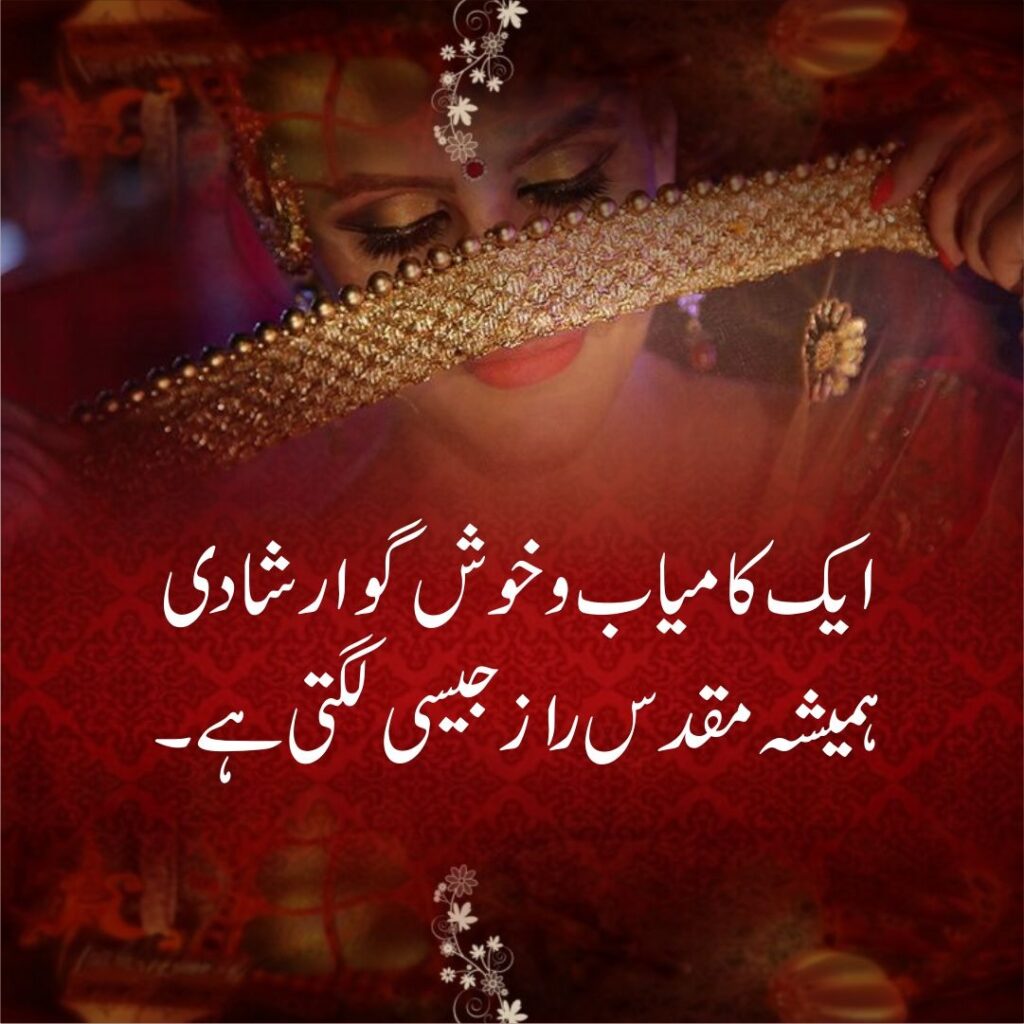- M-51, Muneer Mobile Mall, Block 17, Near Perfume Chowk & Jauhar Chowrangi, Gulistan-e-Jauhar
BLOG by Uzair Rehman
Court Marriage / Civil Marriage Law: Rights and Responsibilities
Welcome to our blog post on Court Marriage/Civil Marriage Law: Rights and Responsibilities in Pakistan! In a society where traditional customs often prevail, court marriage emerges as a progressive approach for couples seeking legal recognition of their union. This alternative way of getting married provides citizenship status, protects privacy, and offers legal safeguards. This article will explore the various aspects of court marriage in Pakistan, including its documentation requirements, cultural factors, and witness guidelines. So, let’s dive right in and discover why court marriage is becoming an increasingly popular choice for modern couples in Pakistan!
Court Marriage / Civil Marriage in Pakistan: Citizenship Status
Court marriage in Pakistan signifies the union of two individuals and grants them certain legal rights and responsibilities. One significant aspect is the citizenship status it offers to the couple. By going through the court marriage process, both partners can obtain official recognition as spouses, which can have various benefits in terms of documentation and legal matters.
Court Marriage / Civil Marriage in Pakistan: Couples Review
For couples in Pakistan, court marriage offers a modern and progressive approach to tying the knot. Many couples have opted for this legal choice, allowing them to exercise their rights while fulfilling their responsibilities as married individuals. With its emphasis on privacy protection and documentation guidelines, court marriage provides a safe and secure route for couples seeking an alternative to traditional wedding ceremonies.
Court Marriage /Civil Marriage in Pakistan: Privacy Protection
Regarding court marriage in Pakistan, privacy protection is a crucial aspect that couples must consider. The marriage decision should be personal and private, without interference or judgment. Here, individual freedom and choice are valued, and court marriage allows couples to keep their union discreet. By opting for a court marriage, couples can ensure their relationship remains confidential and away from prying eyes. This protects them from unwanted scrutiny and allows them to make life decisions without societal pressure.
Court Marriage / Civil Marriage: A Legal Choice for Couples in Pakistan
In a constantly evolving society, court marriage has become an increasingly popular option for couples in Pakistan. This legal choice allows couples to bypass traditional marriage ceremonies and opt for a simpler and more streamlined process. In court marriage, couples can enjoy several benefits. It will enable them to exercise their right to privacy, unlike traditional weddings, which are often elaborate affairs with numerous guests and court marriage. Provide a more intimate setting where couples can exchange vows without unnecessary interference or judgment from others.
Court Marriage / Civil Marriage Legal Safeguards
When it comes to court marriage or civil marriage in Pakistan, certain legal safeguards are in place to protect the rights and responsibilities of couples. These safeguards ensure the process is fair, transparent, and adheres to the law. Legal safeguards are that both parties must willingly consent to the marriage. This means no individual can be forced into a court marriage against their will. The consent of both individuals is crucial for a valid court marriage.

Court Marriage / Civil Marriage: Unlocking Privileges and Opportunities
Couples can enjoy joint property ownership, inheritance rights, and access to healthcare facilities by obtaining citizenship through court marriage. Additionally, it provides a solid foundation for future endeavors like applying for passports or visas together. Court marriage serves as an avenue for couples to establish their identity as a unit under the eyes of the law and gain equal footing with married couples who opt for traditional ceremonies.
Court Marriage / Civil Marriage – A Progressive Approach for Pakistanis
In a constantly evolving society, court marriage has become a progressive approach for many Pakistanis. It allows couples to choose their partners without societal restrictions and protects their union legally. This alternative to traditional arranged marriages will enable individuals to exercise their right to love and marry whomever they please.
Court Marriage / Civil Marriage: Personal Autonomy in Pakistan
Court marriage promotes personal autonomy and challenges long-held cultural norms in Pakistan. It empowers couples to decide about their lives rather than relying on outdated traditions or familial pressures. By opting for court marriage, individuals can break free from the constraints of societal expectations and forge relationships based on mutual love and respect.
Court Marriage / Civil Marriage: Securing Legal Rights
Court marriage ensures that couples can access legal rights and responsibilities. They can formally register their relationship with the authorities, which grants them certain privileges such as inheritance rights and recognition by governmental institutions. This legal framework protects both parties in the union by providing a clear set of rules and regulations governing their partnership.
Court Marriage / Civil Marriage Fostering Freedom and Equality in Pakistani Society
Court marriage represents a significant step in promoting individual freedom and equality within Pakistani society. It allows couples to embrace modern values while safeguarding their rights through legal means. By choosing this progressive approach, Pakistanis are opening doors toward a more inclusive future where love knows no boundaries or limitations.
Court Marriage / Civil Marriage in Pakistan Legal Consultation
Regarding court marriage in Pakistan, seeking legal consultation is a crucial step. It ensures that couples understand the legalities and can navigate the process smoothly. Consulting with a qualified lawyer specializing in family law can provide valuable guidance on the necessary documentation, procedures, and rights associated with court marriage.
Court Marriage / Civil Marriage: The Importance of Legal Consultation for Informed Unions
Legal consultation lets couples understand their rights and responsibilities before entering a court marriage. It helps them make informed decisions regarding property rights, inheritance laws, and other essential aspects of their marital life. With proper legal advice, couples can ensure that their court marriage is legally valid and recognized by the authorities.
Court Marriage / Civil Marriage: The Role of Legal Ensuring Compliance
Legal consultation plays an essential role in ensuring that court marriage in Pakistan are carried out within the framework of the law. By seeking professional guidance, couples can avoid potential complications down the line and embark on their journey as married individuals with confidence and peace of mind.

Court Marriage / Civil Marriage: Progressiveness and Freedom of Choice in Pakistan
Court marriage offers a sense of empowerment and progressiveness. They allow individuals to make choices regarding love and commitment, free from societal pressures or cultural expectations. This modern approach challenges long-held beliefs about matrimony and encourages couples to prioritize their happiness above all else. Court marriage is an alternative option that caters to contemporary Pakistani couples’ changing needs and desires. It empowers individuals by granting them the freedom to choose how they want to legally unite with their partners while ensuring privacy protection throughout the process.
Court Marriage / Civil Marriage in Pakistan Documentation Guidelines
Regarding court marriage in Pakistan, there are specific documentation guidelines that couples need to follow. These guidelines ensure the process is legally sound and smooth for both parties. Couples must provide their original identification documents, such as national identity cards or passports. This helps establish their identities and citizenship status. Additionally, they may be required to provide proof of age through birth certificates or educational documents.
Court Marriage / Civil Marriage in Pakistan Cultural Factors
When it comes to court marriage in Pakistan, cultural factors play a significant role. Pakistani society is deeply rooted in traditions and customs, which can sometimes pose challenges for couples seeking a court marriage. The conservative mindset prevailing in some communities may resist the idea of court marriage, considering it against cultural norms.
Court Marriage / Civil Marriage Change and Freedom in Modern Unions
Court Marriage, it is essential to acknowledge that times are changing, and there is a growing acceptance of court marriage among young couples who wish to exercise their right to marry freely. With increased exposure to modern ideas and progressive thinking, many individuals are breaking free from societal pressures and choosing court marriage as an alternative option.

Court Marriage / Civil Marriage: Cultural Sensitivities in Pakistan
In this evolution, it becomes crucial for couples considering a court marriage in Pakistan to navigate these cultural factors with sensitivity while staying true to their beliefs and desires. Open communication with families and seeking support from like-minded friends or organizations can help alleviate conflicts arising from cultural differences.
Court Marriage / Civil Marriage in Pakistan Documentation Requirements
In court marriage in Pakistan, there are specific documentation requirements that couples need to fulfill. These requirements ensure that the marriage is legally recognized and protected by law. Both parties must provide valid identification documents, such as national identity cards and six photos. This helps establish their identities and ensures they meet the legal age 18 requirement for marriage. Proof of residence may also be required to confirm their current address.
Court Marriage / Civil Marriage: The Importance of Witnesses and Documentation
Couples need to provide two witnesses who can testify to the authenticity of the marriage. These witnesses are crucial in validating the court marriage and confirming that both parties willingly entered this union. Court marriage is legally recognized and protected by fulfilling these documentation requirements. They need to understand these requirements beforehand to prepare all necessary documents accordingly.
Court Marriage / Civil Marriage: The Role and Significance of Witnesses
Another crucial legal safeguard is the requirement for witnesses during the court marriage proceedings. Typically, two witnesses are needed who can attest to the fact that both parties have willingly entered into this union. These witnesses are vital in ensuring all legal requirements are met and providing additional protection for couples.
Court Marriage / Civil Marriage: Upholding Legal Freedom of Choice
These legal freedoms help ensure that court marriage or civil marriages in Pakistan are conducted within the law and provide necessary protections for couples entering this type of union. By upholding these safeguards, courts aim to create an environment where individuals can exercise their right to choose their life partner freely and without any coercion or undue influence.
Court Marriage / Civil Marriage: A Couples Modern Marriage in Pakistan
In recent years, court marriage has emerged as a popular choice for couples in Pakistan who want to have a modern and progressive approach to their marriage. This alternative form of union allows couples to bypass traditional ceremonies and rituals and instead focus on the legal aspect of their commitment.
Court Marriage / Civil Marriage: Choosing Freedom and Financial Sensibility
With court marriage, couples can enjoy the benefits of a legally recognized union without being constrained by societal norms or cultural expectations. It allows them to choose how they want their marriage to be conducted, ensuring that both partners participate equally in this critical life decision. Couples can avoid unnecessary expenses associated with lavish weddings by opting for court marriage. Instead of spending large sums on elaborate ceremonies, they can invest those funds into building a stable future together.
Court Marriage / Civil Marriage: A Modern Start for Equality and Independence in Pakistan
Court marriage offers Pakistani couples a more modern way of starting their journey together. It gives them control over their destiny while providing legal recognition and protection for their relationship. Whether it’s due to personal preferences or practical reasons, choosing court marriage is becoming increasingly popular among young Pakistani couples seeking equality and independence in matrimony
Court Marriage / Civil Marriage: Trust and Equality in Pakistan
Couples who have chosen court marriage in Pakistan often praise its simplicity and efficiency. They appreciate the streamlined documentation requirements, which make the process hassle-free. Court marriage offers legal safeguards and ensures couples can freely express their love and commitment without societal or cultural constraints. This empowering option allows them to start their journey on equal footing, setting the stage for a strong foundation of trust and mutual respect.
Court Marriage / Civil Marriage: Bridging Tradition and Modernity in Pakistani Matrimony
In essence, court marriage has become a popular choice amongst Pakistani couples due to its practicality and ability to provide legal recognition while bypassing unnecessary cultural factors. It allows partners to prioritize each other’s happiness over societal expectations. As more couples review their options, it is evident that court marriage is bridging the gap between tradition and modernity in Pakistan’s matrimonial landscape.
Court Marriage / Civil Marriage in Pakistan Witness Requirements
Witnesses must be present during the ceremony for a court marriage to be legally recognized in Pakistan. The witness requirements for court marriage may vary depending on the region or jurisdiction within Pakistan. However, generally speaking, two witnesses are required to validate the marriage. These witnesses can be any adult individuals who are not blood relatives of either party involved in the marriage. They must be present when signing the marriage documents and provide their full names, addresses, and CNIC (Computerized National Identity Card) numbers as part of the documentation process. The presence of witnesses ensures additional legal protection and verification for court marriage.
Court Marriage / Civil Marriage: A Couples Modern Marriage in Pakistan
Court marriage offers a modern alternative for couples seeking legal recognition of their union without going through traditional cultural ceremonies or religious rituals. This progressive approach allows couples from different backgrounds and religions to exercise their right to choose whom they marry while adhering strictly to legal procedures. In Court marriage, couples ensure their relationship is protected under Pakistani law. They gain access to various rights such as inheritance claims, property ownership rights, healthcare benefits, spousal support obligations, child custody matters, immigration benefits if applicable, and many other legal protections afforded by civil unions.
Legal Services
- Divorce Law
- Child Custody
- Family Law
- Financial Law
- Civil Legalation
Syed mohsin Ali Shah
Phone : +92316-6644789
Let's Connect
- 0333-1127831
- [email protected]
- M-51, M-52, Muneer Mobile Mall, Near Perfume Chowk Jauhar Chowrangi, Block 17, Gulistan-e-Jauhar, Karachi, Pakistan.
- Suite No. 5, 2nd Floor, Laraib Centre, Mangla Road, Karachi Company, G-9 Markaz, Islamabad Pakistan
The Legal Process of Court Marriage
Court marriage is a legal way for couples to solemnize their union without any unnecessary social formalities. The court marriage procedure in Pakistan involves a few simple steps that make it an attractive option for many couples.
Identity Proof: First, the couple needs to obtain and fill out the application form available at the local registrar’s office.
Documents: They must provide necessary documents such as identity cards, photographs, and proof of age.
Additional Requirements: After submitting the application form along with all required documents, the couple will be given a date for their court marriage ceremony. On the assigned day, they appear before a judge in the family court along with two witnesses who can attest to their identities and consent for marriage. The judge then performs the nikah ceremony and issues a certificate declaring them legally married
